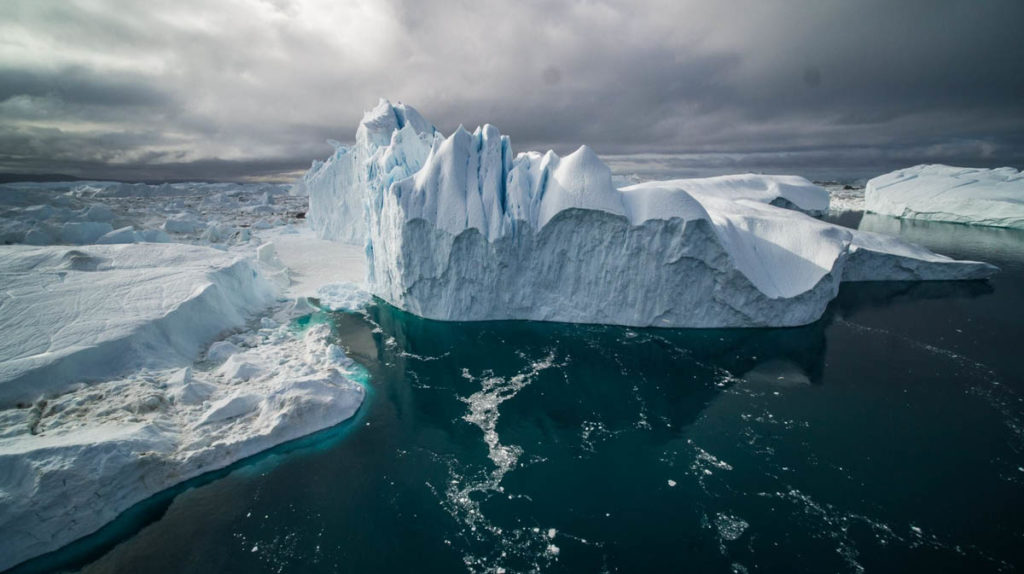“How do you negotiate with an iceberg? You go around it.
I’m about to swim where I shouldn’t be able to, for the second time in my life. All because of ice – or the lack of it.“
Lewis Pugh
Lewis swam across the North Pole thirteen years ago. The Pole should have been frozen over, therefore that swim shouldn’t have been conceivable. However, there was proof of a warming world in the ink-black water, and he needed everyone to be aware of it.
This month Lewis will swim across the Ilulissat Icefjord, which is fed by the world’s fastest glacier. Ilulissat helps scientists learn how swiftly glaciers are melting due to climate change (including, mythology has it, the one that sank the Titanic).
On Greenland’s west coast, the Ilulissat Glacier drains roughly 30 cubic kilometres of ice per year into the sea. The icebergs that break off the glacier can reach heights of nearly one kilometre.
The glacier is melting at a faster rate now, due to rising air and ocean temperatures – an average of 30 metres every day, and even faster in the summer.
If the entire Greenland Ice Sheet melted, global sea levels would rise by more than 7 metres. To put it in perspective, a one-metre increase would completely engulf large cities like London, Tokyo, and New York.
This swim will be the longest and coldest of his life.
No one has ever studied the long-term effects of swimming in water that can dip to minus 1.7°C – and that’s before you throw in the wind chill factor.
He’s not sure how his body will handle it. In the Polar Regions, no one has ever tried a multi-day swim. Every day, he will swim one kilometre, then reheat, rest, and repeat the process the next day.

The question is, why is Lewis swimming?
The United Nations Climate Change Conference (COP26) will be held in Glasgow next year, and decisions will be taken that will decide our common future.
Lewis wants to remind everyone at the conference that we rely on ice to stay alive. It keeps the temperature of our world within a range that we can survive in. There is no life without ice. According to Lewis, he will tell them that this is their last chance to honour and go beyond the obligations they made in Paris. He wants to implore them to take immediate action.
About Lewis Pugh
Lewis William Gordon Pugh, OIG, is a British-South African endurance swimmer and ocean advocate who was born on December 5, 1969.
“Sir Edmund Hillary of swimming,” as he’s been dubbed.
He is the first person to swim across every ocean in the world, and he routinely swims in endangered habitats to raise awareness about their situation.
Pugh was instrumental in establishing the world’s largest marine reserve in the Ross Sea, off the coast of Antarctica, in 2016. The name “Speedo Diplomacy” was popularized by the media to represent his attempts to help negotiate the final agreement on the reserve by swimming in the frigid waters of Antarctica and travelling between the US and Russia.
When not swimming, Lewis works at the University of Cape Town as an Adjunct Professor of International Law.






